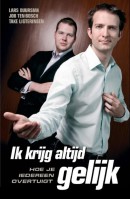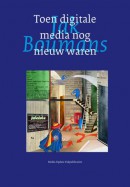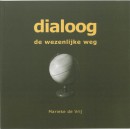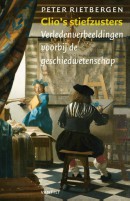Product informatie
- ISBN 9789051790283
- ISBN 10 9051790287
- Druk 1
- Bindwijze Paperback
- Taal Nederlands
- Uitgever Gopher B.V.
- Onderwerp Geschiedenis algemeen
- Beschikbaar sinds 5 Mei 2006
Samenvatting
Imperialism in Medieval History III Dualism in German History II Vol. XVII is the third on the Middle Ages in the series The light and the Dark. A cultural history of dualism. Vols. XV-XVII are all devoted to the history of medieval imperialism. Imperialism is conceived of as a dualistic phenomenon, which means that it is based on an unsolvable opposition. This is the opposition between the tendency of imperialism to bring all national and political entities under one supreme leadership and the resistance of these entities: tribes, nations, states, to this tendency. This not rarely leads to fierce, even bloody conflicts, because these entities are forced to accept imperialistic rule against their wish. Imperialism, incorporated in the Holy Roman Empire deutscher Nation, is one of the main features ... of medieval history. Ch. I describes German imperialism during the Salian dynasty. Most of the problems the Salian emperors (Conrad II, Henry III, Henry IV, Henry V) had were located in Italy (German emperors were also kings of Italy). One of the aims of German imperialism was to unite Italy under the imperial crown. This was difficult to accept for the wealthy North Italian cities, especially Milan, which continiously resisted the German claims. Then there was the Roman Catholic Church, with a universalistic claim of its own, which did not want to be at the beck and call of the German emperors. The reform movement of Cluny had made the Church far more self-conscious; it began to break the bonds that, since Otto I, tied to German policy. This led to a fierce conflict between Pope Gregory VII and the Emperor Henry IV. Some sort of compromise was reached in 1122, with the Concordat of Worms. The Staufer dynasty (Lothar III, Conrad III, Frederick I Barbarossa, Henry IV, Frederick II, Ch. II) not only inherited the problems of the Salians, but was also confronted with fierce resistance in Germany itself, especially from the side of the Welf House; there were long periods of civil war, during which there were two German kings. The mighty communes in North Italy remained a problem which sometimes led to open warfare. Relations with the papacy also remained problematic. The main aim of German policy came nearer to its goal, when the emperor Henry VI inherited the Kingdom of Sicily and South Italy. But with the death of Frederick II in 1250 Sicily-South Italy was lost again. After 1250 (CH. III) not much was left of the reality of the Holy Roman Empire. German emperors were only powerful in their own feudal domains. Particularist tendencies were becoming even more powerful, to the detriment of the unitary concept. It was the period of the Hausmächte, of the time that rulers collected all sorts of feudal domains under their aegis: Nassau, Luxemburg, Wittelsbach, Burgundy all built up a Hausmacht; members of these Houses became emperors. The day was won by the House of Habsburg with its enormous Hausmacht. Since 1438 the Empire had a Habsburg emperor (Albrecht II, Frederick III, Maximilian I). Ch. IV sums up the main features of this period For more information about 'The Light and the Dark'- series go to Fontaine's own website: http://home.wanadoo.nl/piet.fontaine
Meer boeken van uitgever Gopher B.V.
Meer boeken met de onderwerpen Geschiedenis algemeen
Veel gestelde vragenmeer antwoorden
Hoe werkt Resale.nl?
Je kunt op de website advertentie(s) plaatsen van de boeken die u wilt verkopen. Een potentiële koper neemt dan contact met je op om samen een prijs af te spreken en de transactie verder af te handelen. Houdt hierbij onze aanbevelingen voor een veilige transactie in gedachten en voorkomt dat je slachtoffer wordt van oplichting.
Hoe kom ik in contact met de verkoper?
Je kunt een reactie versturen door bij de betreffende advertentie van de verkoper op de knop ‘doe een bod’ te drukken. Je kunt nu een bod doen op de advertentie en een persoonlijk bericht toevoegen. Het verstuurde bod brengt je in contact met de verkoper via e-mail.
Wat zijn de kosten voor het verkopen van mijn studieboeken?
Je kunt geheel gratis gebruik maken van de diensten van Resale.nl. Resale.nl haalt zijn inkomsten uit advertenties.
Hoe kan ik een boek kopen?
Resale.nl werkt globaal op de volgende manier:
- Zoek via het zoekveld het studieboek dat je wilt kopen.
- Uit de zoekresultaten kies je het studieboek waar je geïnteresseerd in bent.
- Op de detailpagina van het studieboek kun je een overzicht vinden van de personen die het studieboek verkopen.
- Je kunt nu een bod plaatsen door op de button te klikken. Het bod wordt via e-mail aan de verkoper verzonden.
- De verkoper van het studieboek neemt contact met je op door een reactie te geven op het bod dat je hebt verzonden. Met de verkoper kun je gezamenlijk een prijs afspreken. Houdt hierbij onze aanbevelingen voor een veilige overdracht in gedachten en voorkom dat u slachtoffer wordt van oplichting.
Hoe weet ik wat ik koop?
Om te achterhalen of wat je koopt ook daadwerkelijk is wat er wordt geadverteerd is het verstandig om bij de verkoper langs te gaan en het aangebodene te bezichtigen. Doe je dit niet, dan loopt je een zeker risico. Onder het kopje ‘Hoe kan ik de kans op misbruik verkleinen’ kun je meer over dit onderwerp vinden.
Kopers over Resale.nl
bart van gijsel
"Ik ben erg tevreden over deze verkoper de familie thus. Goede snelle levering."
Patrice Michel
"De verkoper heeft er alles aan gedaan om het door mij bestelde product zo snel mogelijk naar mij toe te krijgen. Heeft me van iedere stap op de hoogte ..."
marjolein
"Besteeling snel bezorg, in goede staat net zoals beschrijving en goede communicatie met verkoper!"
marjolein
"Goed contact, snel en in goede orde ontvangen. Staat van het boek was zo goed als nieuw!"
hilda1
"goede medewerking en hulp dank u wel"
Tineke
"Het bestelde werd netjes en snel afgeleverd. De prijs was goed."
stacy
"Goed verpaktBoek ziet er mooi uit"
elisa
"Goede levering alleen jammer dat er niet bij was gezet dat er al in geschreven was"
Elly
"Verkoper reageerde snel op mijn emails en heeft ook het boek snel opgestuurd.Het boek was niet van nieuw te onderscheiden. Was waarschijnlijk niet gebruikt. ..."
Gerard+[2]
"Prettig contact gehad en goed zaken kunnen doen."
















